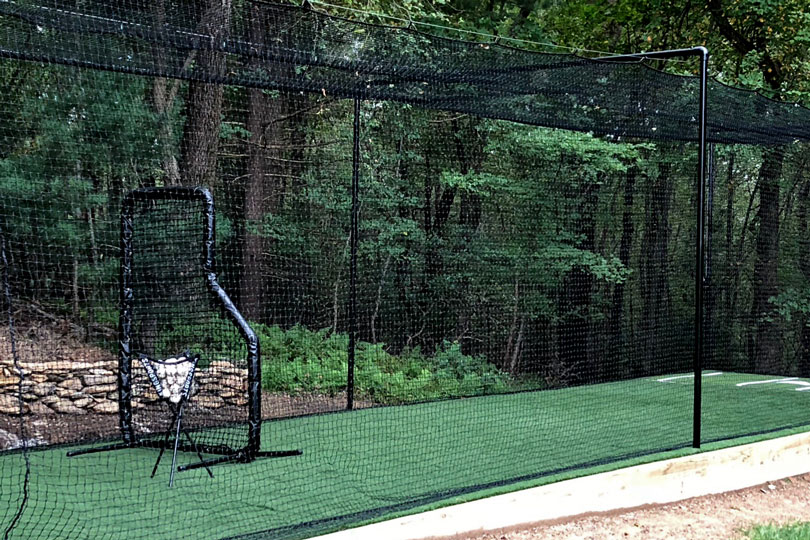Jeni Shannon’s work with UNC athletes highlights importance of mental health resources
[ad_1]
Escalating research supports the relevance of sports psychology, primarily in schools and athletic packages with large-overall performance anticipations.
At UNC, a Energy 5 faculty that holds every team to a typical of countrywide competitors, establishing psychological health and fitness packages for athletes is primarily essential for their general wellbeing.
Jeni Shannon, the director of the Carolina Athletics Psychological Overall health and Functionality Psychology Application, is 1 of three entire-time vendors at UNC pioneering the athletic department’s method to sports activities psychology. Shannon, along with Brendan Carr and Bradley Hack, are developing applications to help address psychological ailment within just UNC’s athletic local community.
When Shannon was a senior in substantial university, a career-ending personal injury pulled her out of the planet of aggressive gymnastics and into coaching. An undergraduate course at the University of Arizona termed “The Psychology of Excellence” uncovered to her to the subject of sports activities psychology, and she noticed its relevance as a result of her possess experience in sports activities and her time with gamers.
Though Shannon recognizes that UNC gives “an enjoyable athletic lifestyle to be a section of,” she is also cognizant of the affect of high athletic anticipations coupled with educational rigor.
“I feel the flip aspect of it can be (that) it is a large amount of force and you are very public in some cases,” Shannon mentioned. “There is a lot of expectation. It is a tricky life, it really is.”
The effect of Shannon and her colleagues’ perform inside of the athletic area reveals a important oversight inside the industry of sports activities drugs when it comes to psychological wellbeing, primarily in light of the COVID-19 pandemic.
Increasing senior volleyball participant Parker Austin saw everyday living as an athlete at UNC in advance of and following COVID-19, and mentioned that getting an athlete through the pandemic was an isolating experience.
“It’s this never-ending cycle of wake up, operate out, go to follow, come property, shower and go to mattress,” Austin mentioned. “It truly is just this persistent cycle that you get type of get caught into and you never leave your room, and you just do not get to see other people. That afflicted me rather greatly.”
AMP has grown exponentially in the past couple years, increasing from a person to a few entire-time suppliers. In accordance to Shannon, a the greater part of the work she and her colleagues do requires interacting with athletes just one-on-1, but there are also several new initiatives that goal to incentivize extra peer leadership within just sports activities teams by themselves.
UNC industry hockey head mentor Karen Shelton mentioned that Shannon’s perform with her workforce has been “outstanding.”
Shannon hosts weekly 30-minute conferences with the crew, delivering a secure place to talk about topics these types of as athletic effectiveness and social and crew concerns.
“It gives all people a job on the group,” Shelton explained. “No make any difference what your placement is, you have a voice. I consider that’s one of the most significant matters, but also, general performance. If you are not owning a great match, owning a resource or anything that you can imagine of that can pull you back in.”
Shannon is effective specifically with a amount of athletic teams at UNC by means of periods, outreach and programming. She states there is also a newfound emphasis on instruction coaches so that they can be far better outfitted when psychological health concerns arise inside of their teams.
A different significant aspect of integrating sports activities psychology into the UNC Office of Sports activities Drugs is the effort and hard work to destigmatize the discussion close to performance problems and worry.
“Mental health is health and fitness,” Shannon stated. “It can be not different from, it is just a component of your wellbeing. I imagine 1 of the most important factors we can do is handle it just like we do actual physical health. Have coaches point out it and talk about it. Have athletic trainers and team doctors be examining in on psychological overall health along with physical wellness. Have athletes be willing to chat to each other about it.”
By making sure players are comfy talking about mental overall health issues with their coaching staff members and peers, Shannon and her team can collectively create a safer area for athletes at UNC.
Although AMP is growing, three complete-time vendors may not be satisfactory for a substantial population of athletes. Some have voiced concerns that the variety of providers does not match the amplified desire for psychological wellness products and services.
“It is so wonderful to see UNC as a total start out to destigmatize psychological well being,” UNC women’s soccer volunteer assistant and increasing junior Madi Pry stated. “We’re possessing additional discussions about it and encouraging people today to get assistance. But then yet again we have a few full-time athletics psychologists for around 800 athletes, which is of program heading to generate waitlists.”
The existence of an in depth waitlist, on the other hand, highlights the salience of Shannon’s get the job done in the UNC athletic group, and shows that AMP is a software UNC really should continue on to create.
“The impact that they are possessing on athletes, now and taken off and future athletes, is likely to be big,” Austin explained. “I am just psyched to see how it keeps escalating and how it can continue to keep serving to learners since it is definitely so critical.”
[ad_2]
Supply hyperlink



